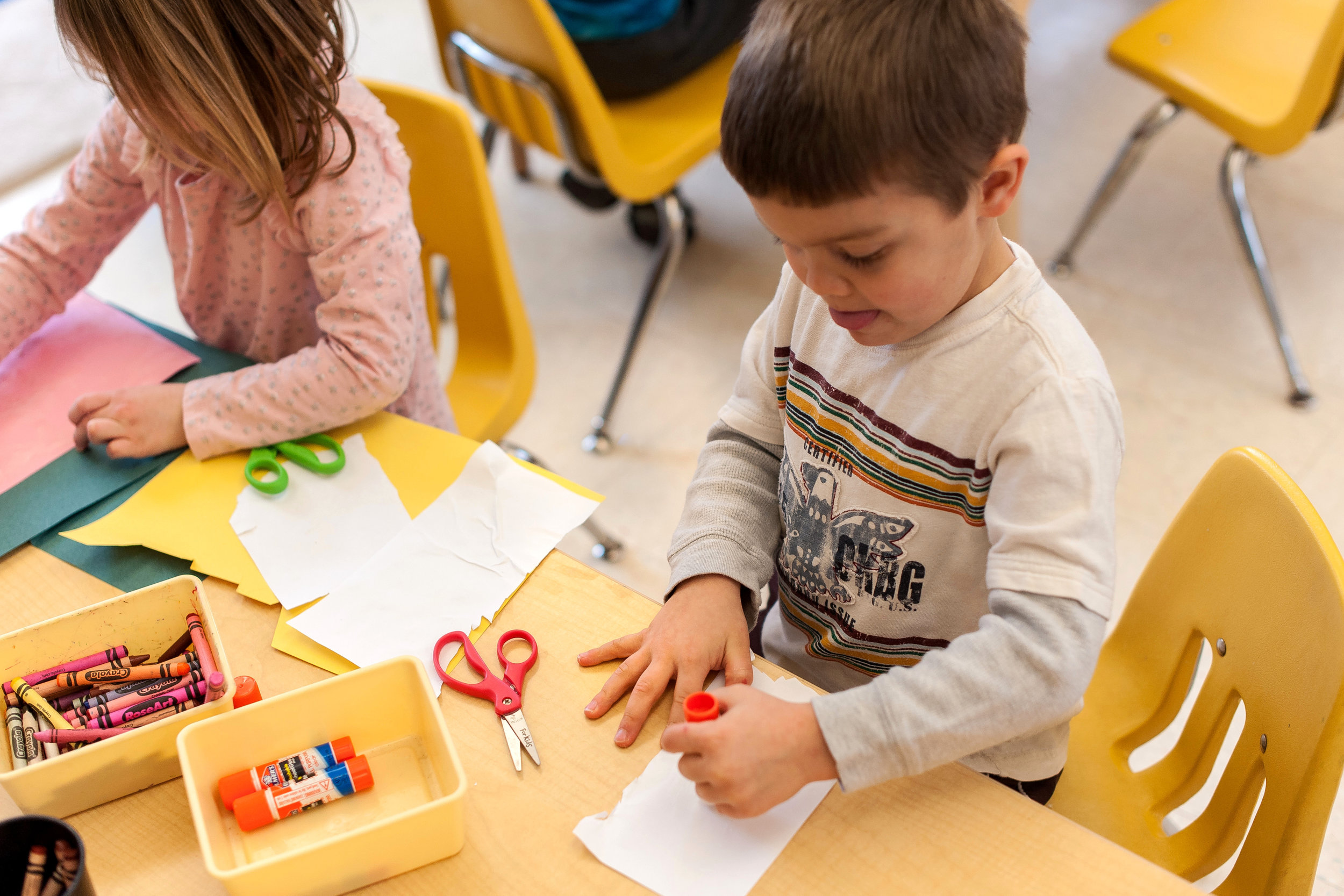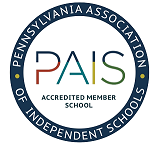PLAYFUL LEARNING
Social & Emotional
In our classes, children are learning how to initiate relationships with peers, how to self-regulate their emotions and how to be responsible members of a classroom community. Activities are carefully planned to celebrate each child’s Inner Light and showcase the unique qualities of every member of the classroom. Our teachers help children understand what to expect throughout their school day by providing them with consistent routines. These guidelines and expectations help children feel secure and comfortable as move through different parts of their day. Friendship and community-building activities are planned to foster positive and respectful interactions amongst classmates. Literature, songs, games, dramatic play and discussion are used to support these explorations. Throughout the year, the Quaker testimonies of peace, integrity, community and equality are the foundation upon which we develop the children’s self-awareness, their ability to resolve conflicts peacefully, and their willingness to share and accept different ideas.
Handwriting Readiness and Writing
Children will begin learning about letters using finger plays, music and movement, and building activities in the Preschool “Threes” year to become familiar with the Learning Without Tears: Get Set for School Pre-K Curriculum for Readiness and Writing materials. Students will build upon that foundation throughout Pre-Kindergarten. The Get Set for School Pre-K Curriculum for Readiness and Writing is used to help students develop the early stages of pre-writing readiness. With teacher guidance, modeling, and a strong foundation in place, Pre-Kindergarten children will advance to capital letter formation and name writing. The Wilson Fundations program, used with our Kindergarten students, builds upon what is learned in prior years with reinforcement of uppercase formation and introduction to lowercase formation.
Language & Literacy
Research shows that reading aloud to young children promotes language development and early literacy skills. It also increases vocabulary, enhances concentration, brings understanding of important topics & everyday life, and helps children understand that print has meaning. Throughout the school day, in each classroom, children listen to stories as a whole group or sometimes curled up in a teacher’s lap. Our classrooms have comfortable reading nooks where children can explore books on their own or with peers. In addition, our school has a Children’s Library, where classes visit weekly and children can take books home to share with their families.
Literacy skills, such as phonological awareness (relationship between sounds and written symbols), alphabet knowledge, concepts about print, comprehension, oral language, and written language are developed through the use of hands-on activities and taught in a sequential order so that young children have an opportunity to build on their prior learning. Teachers are mindful of each student’s developmental needs and offer added support for those children who may need extra attention in these areas. Our Pre-Kindergarten classes utilize the Learning Without Tears: Get Set for School Pre-K Curriculum for Language and Literacy, while our Kindergarten classroom uses The Wilson Fundations program.
Math and Numbers
Young children are surrounded by opportunities to explore math concepts every day. Snack time gives them a chance to develop counting and one-to-one correspondence as cups and plates are passed out and snack is served. Blocks, Lego, and puzzle play build visual-spatial skills. Patterns can be noticed all around us in art, music and nature. Cooking projects engage children in exploring concepts such as size, weight, amounts, and order (first, second, third).
It is through this spontaneous play and engaging activities that children develop early math skills in the following areas: Numbers & Operation, Geometry, Patterns & Algebra, Measurement & Time, and Data Representation & Probability. The Pre-Kindergarten classes use the Learning Without Tears: Get Set for School Numbers and Math curriculum. Our Kindergarten utilizes the Math Their Way curriculum, a hands-on approach to learning mathematics using manipulatives, as well as Singapore Math.
Science
Children are natural explorers and curious about the world around them. They will be offered opportunities to question their environment, propose and test hypotheses, and form their own conclusions. The beautiful grounds of Gwynedd Friends are the perfect environment to study nature through walks on the nature trails, observing trees, plants and wildlife and working on gardening projects. We have a Nature Enrichment group and also schedule special programming with the Perkiomen Watershed for our Preschool “Threes”, Pre-Kindergarten & Kindergarten children.
Art
Young children are naturally curious and creative. Our teachers provide multiple opportunities for self-expression through art. Children have access to a wonderful array of materials for creating art, both in the classroom and in nature. Art invitations are offered by teachers to develop fine motor skills, as well as means of connecting to the learning in our Explorations. Our teachers model and guide children in using new art mediums and techniques, while encouraging experimentation and individual self-expression. We recognize the value in the process of creating art versus the final product and emphasize this in order foster a child’s self-confidence and willingness to take risks. In May, we host a School-wide Art Show where we celebrate the work of every child with our school community and their families.
Music and Movement
Music and movement play a vital role at GFS. Our teachers use music and movement throughout the day to enhance circle times and morning meetings, to ease transitions and as a connection to learning. Exposure to different styles of music, song and movement takes place in each classroom and children are encouraged to express themselves through these avenues.









